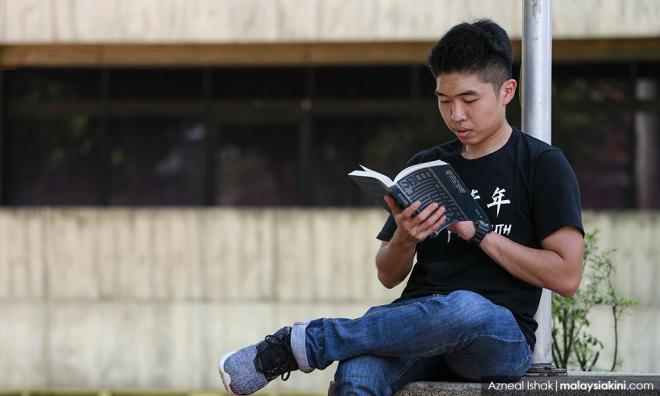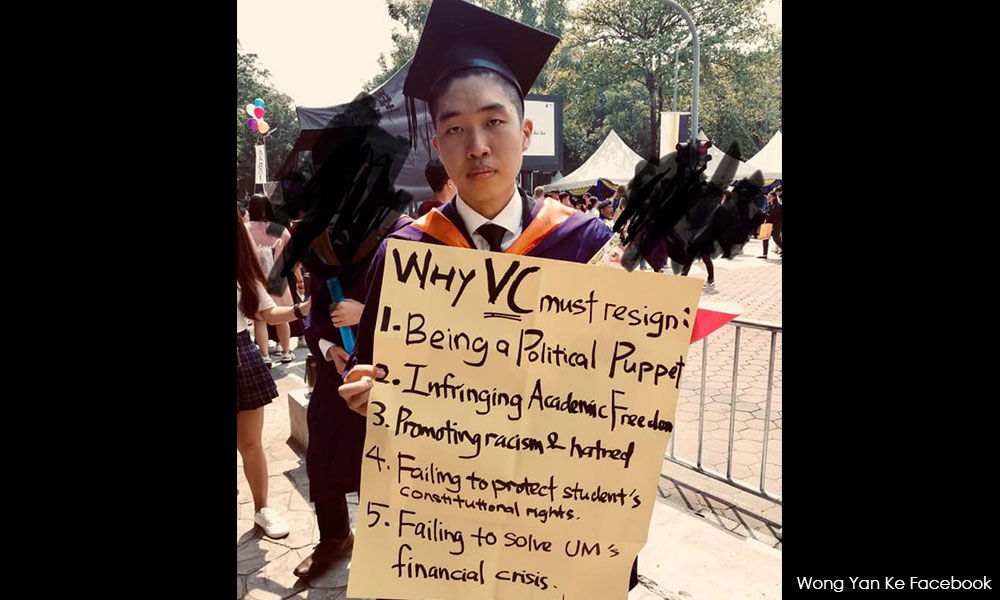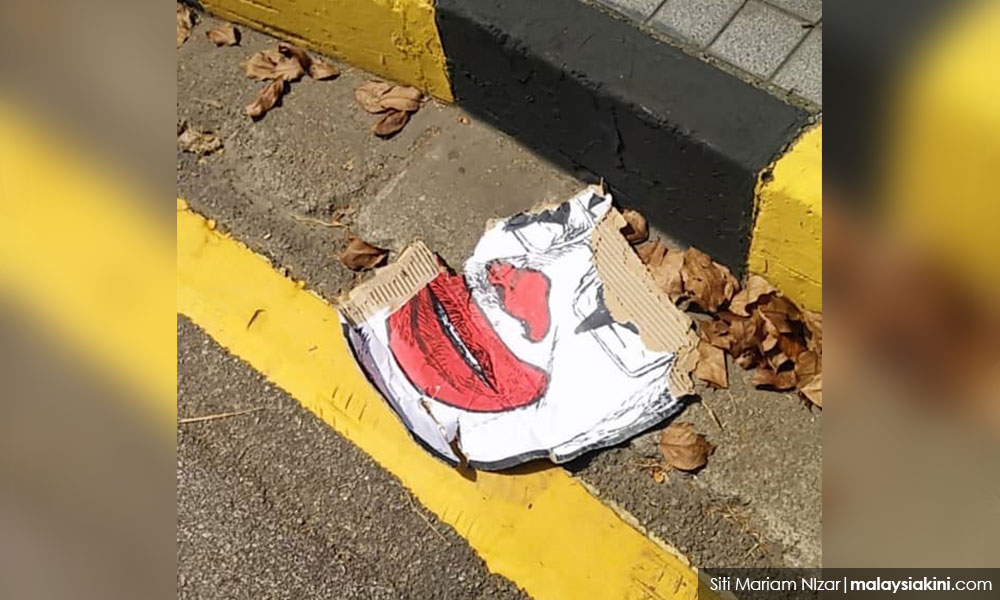
Here is the dilemma of young people: When we look for a job, employers always tell us that we lack critical thinking. But when we start thinking critically about the world around us, the authorities clamp down on us; our voices stifled.
Today, more than 60 percent of graduates in Malaysia are still unemployed after 12 months of graduation.
This means, if Universiti Malaya were to withhold Wong Yan Ke’s degree certificate on the grounds of protesting at the convocation, Wong’s real job prospect wouldn’t be affected as long as the university doesn’t withhold his degree for more than 12 months. Even if they do and Wong struggles to find a job, at least he won’t be alone.
That is how bleak our future is.
Employers, government and industry experts all tell you the same thing. Young people are not employed because they are not employable. Young people lack critical thinking: they don’t question the world around them, they don’t attempt to solve problems, they don’t have creativity, and they lack the courage to form an opinion and take a stance.
But when a person with critical thinking comes along, we use the entire state machinery to destroy him.
I don’t know Wong Yan Ke personally, nor do I have to agree with what, how and where he is protesting, but I surely know that this student has critical thinking.
Critical thinking 1: He questions the world around him, he doesn’t just accept the world as it is
The first step in developing critical thinking among Malaysian students is to get rid of the spoon-feeding mentality. Don’t just take in what you are being told and regurgitate them word for word. Instead, always assess what you are being told.
Wong has critical thinking because he doesn’t just accept that, just because his university’s vice-chancellor endorsed the Malay Dignity Congress, that he has to agree to it too. Wong clearly sees the separation between the academic institution and the individual.

He also made an intellectual separation between what the university endorses and what he personally believes in. In his opinion, the independence of the academic institution would be threatened, and academic freedom would be curtailed with the vice-chancellor’s actions.
Whether Wong was correct in his viewpoints is immaterial, the point is that he was engaged in a critical thinking process of not accepting the world as it is. Instead, he chose to fight back with his own beliefs.
Critical thinking 2: Attempting to solve a problem
The biggest problem of intellectuals in academia is that they only think about problems, but they do not attempt to resolve them. Wong was different because he acted on what he believed in.
He told the media that he had taken the conventional and mainstream route of writing to the university management and the vice-chancellor about the university’s endorsement of the Malay Dignity Congress, but he didn’t get a response. What he wanted to clarify was whether the endorsement was in line with the values of the university and if it is not, whether the vice-chancellor finds his actions regrettable.
Wong’s resolution was that the vice-chancellor should resign because his actions were not befitting of a person holding the highest position in a prestigious university.
Once again, it doesn’t matter if we agree with Wong’s resolution. The point is that he attempted to solve a problem, and that is an essential component in critical thinking.
Critical thinking 3: Creativity
Another hallmark of critical thinking is that when faced with a setback or barrier, whether the person is creative enough to still solve the problem.
When Wong was not getting any response from the university, he thought of an unconventional path to make his voice heard.
He took to the convocation stage. He thought that the crowd on convocation day was the largest. When no one would want to pay attention to him when he wrote letters and lodged petitions, everyone is now forced to pay attention to him on convocation day.
Instead of showing the world he is an engineering graduate of Universiti Malaya, he chose to show the world his mind. He held a placard that encapsulates his courage and beliefs.
He went alone and did not represent any organisation but himself. He made sure he was the only one suffering the consequences of his actions.

Wong has designed many placards and held it on many occasions. Last time, he held a paper cutout of Najib Abdul Razak and nearly got punched in the face. This time, he held placard and nearly got investigated by the police.
Wong is a creative person who designed many placards and held it in many strategic locations. If this is not critical thinking, I don’t know what is.
Critical thinking 4: Courage to believe
One of the most important lessons I’ve learned in university essays is that you have to always make good arguments and defend your position. The hottest seat in hell is on the fence.
Courage is vital in critical thinking because to defend a position successfully, you are compelled to think deeply about the arguments from the other side, and to probe everything with a clear mind, clear eye and clear heart.
Wong’s beliefs may not be what you believe in. It may also not be his permanent beliefs – he may come to regret some of these thoughts as he grows older. But that is not the point.
Wong is a person who dares to think, believe and subsequently act on what he believes in. That society should be fair and equitable, and the vice-chancellor of one of the most prestigious universities in the country and the region ought to be someone who believes in those higher values.
When no one cared about him, he could easily decide that his voice didn’t matter, but he chose to take the path most visible, audible, incredible.
The media asked Wong if he would do it again. He said 'yes'.
One poor boy
Let’s face it. This is not a question of protocol, freedom, or propriety. This is a question of ego. It is a generation of people saying, “How dare you little boy embarrass me in front of public?”
And that led to an exaggerated orchestra of power, from the university issuing a press release and making a police report, a hailstorm of negative publicity for the student, government ministers expressing disagreements and the police opening a criminal investigation that comes with potential imprisonment and/or fine.
At first, I felt that any action taken on Wong was unfair. But when the weight of the state machinery covers on this one poor boy, suddenly the air is filled with a stench of injustice.
JAMES CHAI is a legal consultant and researcher working for Invoke, among others. You may reach him at jameschai.mpuk@gmail.com. - Mkini



No comments:
Post a Comment
Note: Only a member of this blog may post a comment.